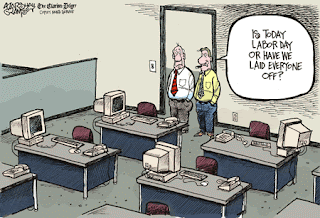The Pullman Strike
The Pullman Strike was a nationwide conflict between the new American Railway Union (ARU) and railroads that occurred in the United States in summer 1894. It shut down much of the nation's freight and passenger traffic west of Detroit. The conflict began in the town of Pullman, Illinois, on May 11 when nearly 4,000 employees of the Pullman Palace Car Company began a wildcat strike in response to recent reductions in wages. Most factory workers who built Pullman cars lived in the planned worker community of Pullman, which Pullman had designed as a model community, but which he controlled. When the company laid off workers, it did not reduce rents, and the workers called for a strike; they had not formed a union. The ARU was an organization of unskilled railroad workers founded in 1893 by Eugene V. Debs. Debs brought in ARU organizers and signed up many of the disgruntled workers. When Pullman refused arbitration the ARU called a strike against his factory, but it showed no sign of success. To win the strike, Debs decided to stop the movement of Pullman cars on railroads. The over-the-rail Pullman employees (such as conductors and porters) did not go on strike. Debs and the ARU then called a massive boycott (usually called a "strike") that affected most lines west of Detroit and involved some 250,000 workers in 27 states at its peak. The Railroad brotherhoods and the AFLopposed the boycott, and the General Managers Association of the railroads coordinated the opposition. Riots and sabotage caused $80 million in damages; 30 people were killed. The federal government secured a federal court injunction against the union, Debs, and the top leaders ordering them to stop interfering with trains that carried mail cars. They refused and the Army moved in to stop the strikers from obstructing the trains. Violence broke out in many cities, and the strike collapsed. Debs went to prison for violating a court order and his ARU disappeared.
On June 29, 1894, Debs hosted a peaceful meeting to rally support for the strike from railroad workers at Blue Island, Illinois. Afterward, groups within the crowd became enraged and set fire to nearby buildings and derailed a locomotive.[8] Elsewhere in the western states sympathy strikers prevented transportation of goods by walking off the job, obstructing railroad tracks or threatening and attacking strikebreakers. This increased national attention and fueled the demand for federal action.
A national commission formed to study causes of the 1894 strike found Pullman's paternalism partly to blame and Pullman's company town to be "un-American". In 1898, the Illinois Supreme Court forced the Pullman Company to divest ownership in the town, which was annexed to Chicago.Labor Day became a federal holiday in 1894 after the strike when President Grover Cleveland and Congress made conciliation of organized labor a top priority. Legislation for the holiday was pushed through Congress six days after the strike ended. Samuel Gompers, who sided with the federal government in its effort to end the strike by the American Railway Union, spoke out in favor of the holiday.
Wow! Injustice, unfair worker treatment, Blood, sweat & tears, & a massive uprising are the foundation of this "holiday".
Fast forward tot he 21st century-- where were have "At will" Employment (employers can fire you without reason). People are lucky to have jobs, and most workers have no voice, and with the "employers market" environment (plenty of unemployed workers seeking jobs)... they have the upper hand, in even overriding Unions. It is not pretty.



No comments:
Post a Comment